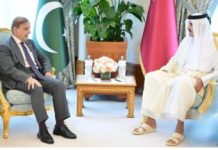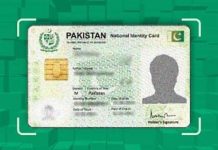ISLAMABAD, MAY 13 /DNA/ – Malik Imran Ahmed, country head of The Campaign for Tobacco Free Kids (CTFK) has urged the government to address the pressing issue of massive tobacco consumption among youth by raising tobacco taxes up to 70 percent of the retail price – a bench mark set by the World Health Organization (WHO).
The proposal comes as government contemplates options to increase revenue collection in the next budget ahead of negotiations with the International Monetary Fund (IMF) for a long-term bailout program.
Pakistan has two-tiered system of Federal Excise Duty (FED) on cigarettes. The country made significant strides and increased the FED on cigarettes in 2022-23. The current FED share in retail prices is 48 percent and 68 percent respectively for low and high tiers.
“It is high time to build on the gains and cut the number of smokers,” said Malik Imran Ahmed.
He said that more than 60 percent population of the country comprises youth and it was imperative for the government protect them from the ills of tobacco use.
The data shows that some 19.1% percent of adults (age 15 and above) currently use tobacco in any form. The tobacco users include 31.8 percent men and 5.8 percent women.
Ahmed proposed 37 percent increase in tobacco taxes keeping in view market dynamics, gains of previous tax adjustments and IMF’s recommendation of taxing non-essential items including cigarettes.
Revenue collection from July 2023 to January 2024 has reached Rs 122 billion and figure expected to surpass Rs 200 billion by year-end. Beyond revenue generation, it helped recouping 17.8% of total healthcare costs associated with smoking-related illnesses in Pakistan.
Tobacco consumption is responsible for approximately 160,000 deaths annually, accounting for a considerable 1.4% of the country’s GDP in healthcare expenses each year.
“The industry has the potential to absorb this increase,” he added.
He referred to the surveys and studies including the one by Interantioanl Monetary Fund (IMF) which said that cigarette consumption in Pakistan had reduced by at least 20 percent after the prices were increased.
Earlier, the Social Policy Development Centre (SPDC) had also advocated the increase saying it can save 265,000 lives, generate an additional revenue of Rs 37.7 billion and push 757,000 people to quit smoking.












